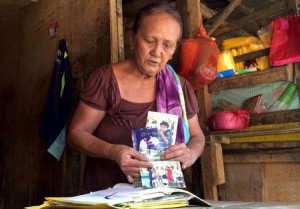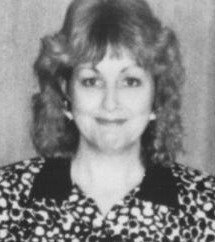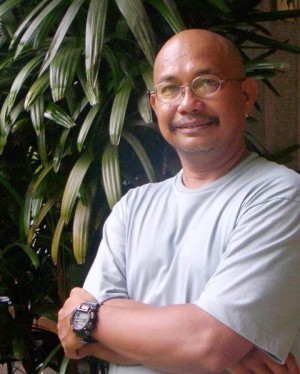Davao Death Squad to go national?
Diehard Rodrigo Duterte supporters appear willing to ignore recent disclosures that their beloved candidate, the front-runner in the Philippine presidential elections next week, has a P211 million peso account with the Bank of the Philippine Islands. They also seem just as willing to ignore his recent creepy confession that when he saw the lifeless body of Australian missionary Jacqueline Hamill in 1989, his first thought was outrage at the criminals not for her gang-rape and murder, but for not allowing him, as mayor of Davao, to be the first to rape her.
Instead of revulsion, his supporters are also reveling at what Duterte has promised to do to all criminals. “Kill them all,” he told a cheering crowd of his supporters on March 15 at a campaign rally in Lingayen, Pangasinan. “When I become president, I’ll order the police and the military to find these people and kill them. The funeral parlors will be packed… I’ll supply the dead bodies,” he said, to rousing cheers of his blood lusty supporters.
Duterte has pledged to kill 100,000 criminals in his first six months in office and to dump so many of them in Manila Bay that, he says, the “fish will grow fat” from feeding on them.
But exactly who are the “criminals” Duterte plans to kill?
About seven years ago, I viewed a Human Rights Watch video about the Davao Death Squad ( https://www.hrw.org/video-photos/video/2009/04/09/you-can-die-any-time-death-squad-killings-Mindanao ) and I wrote about it then.
Below are excerpts from my April 16, 2009 article:
Human Rights Watch Report
“In its April 2009 issue, Human Rights Watch documented the summary killings in a paper entitled “You Can Die Any Time, Death Squad Killings in Mindanao.” The group interviewed Clarita Alia, whose four sons were murdered. Alia said that back in 2001, a senior police officer came to her home to arrest her oldest son (for allegedly sniffing “Rugby” glue), but Clarita Alia demanded to see an arrest warrant before handing him over. The officer warned Alia, “OK, you don’t want to give your child to me, then watch out because your sons will be killed, one by one!”
Shortly after that threat, 18-year-old Richard Alia was stabbed to death in July of 2001, followed by 17-year-old Christopher Alia in October of 2001, Bobby Alia, 14, in November 2003, and Fernando Alia, 15, in April 2007. When the police officer made the threat in 2001, Clarita Alia said, “I was really shocked he mentioned the other sons as they were just little kids then, but he was very angry because I was pushing him out.”

Clarita Alia, 62, holds up photographs of four teenage sons killed by vigilantes, whom she blames Philippine presidential candidate and Davao mayor, Rodrigo Duterte, in Davao City, Philippines, April 21, 2016. REUTERS/Martin Petty
Human Rights Watch also reported on the case of 20-year-old Jaypee Larosa who was walking to a nearby Internet Café a block from his home when he was shot by three men in dark jackets who were riding a motorcycle. Witnesses reported that after they shot him, one of the men removed the baseball cap Larosa was wearing and said, “Son of a bitch, this is not the one,” before leaving the scene.
“Dozens of family members have described to Human Rights Watch the murder of their loved ones, all killed in similar fashion. Most victims are alleged drug dealers, petty criminals and street children, some of whom are members of street gangs. Impunity for such crimes is nearly total—few such cases have been seriously investigated by the police, let alone prosecuted.”
In a recent press conference held on April 24, 2016, Fr. Amado Picardal, former spokesman of the Coalition Against Summary Executions, said murders continue in Davao even until now.
Based on data provided by human rights monitoring groups, since 1998 until 2011, DDS has killed about 1,424 people, 1,367 male and 57 female. The DDS victims list includes 132 children killed—126 boys and 6 girls. The youngest was a 12-year-old boy and a 15- year-old girl.
Almost 50 percent of the victims were young people (children and young adults) who were killed in urban poor areas, Fr. Picardal reports. “Most of those killed were involved in illegal drugs – as users and pushers. There were also those involved in petty crimes – theft, cell-phone snatching, gang members. There were 14 cases of mistaken identity – they were not the intended targets but the DDS hit men mistakenly hit the wrong target.”
Among the DDS victims were two journalists: Jun Pala and Ferdie “Batman” Limtungan. According to Fr. Picardal, “Jun Pala was a radio commentator who constantly spoke out against the DDS and Mayor Duterte. There were two previous attempts on his life and he accused Duterte of being behind these attacks. He was finally killed by motorcycle riding men on the third try. Ferdie “Batman” Lintuan also spoke out against the DDS and also the alleged anomalies in the construction of the People’s Park, which he linked with Mayor Duterte. He was also killed by motorcycle riding men.”
Duterte does not go after drug lords
It is also most interesting that although Duterte has promised to go after drug lords, not one drug lord was ever killed by Duterte’s DDS. They have only gone after the poor drug users and drug pushers who may deserve to be arrested and jailed, but not summarily executed.
Duterte has claimed that he converted to vigilant justice after serving as a government prosecutor and seeing the cases he filed against rich and well-connected criminals get thrown out by corrupt judges. But if this is so, why hasn’t his DDS killed any of the rich, well-connected criminals and corrupt judges he rails against? Why kill only the poor?
Who are members of the Davao Death Squad?
According to Fr. Picardal, “most members of the DDS are either former communist New People’s Army insurgents who surrendered to the government or young men who themselves were death squad targets and joined the group to avoid being killed. Most can make far more money with the DDS than in other available occupations. Their handlers, called amo (boss), are usually police officers or ex-police officers. They provide them with training, weapons and ammunition, motorcycles, and information on the targets. Death squad members often use .45-caliber handguns, a weapon commonly used by the police but normally prohibitively expensive for gang members and common criminals.”
The Human Rights Watch Report also described the modus operandi of the DDS:
“Our research found that the killings follow a pattern. The assailants usually arrive in twos or threes on a motorcycle without a license plate. They wear baseball caps and buttoned shirts or jackets, apparently to conceal their weapons underneath. They shoot or, increasingly, stab their victim without warning, often in broad daylight and in presence of multiple eyewitnesses, for whom they show little regard. And as quickly as they arrive, they ride off—but almost always before the police appear.”
What was Duterte’s response to the Human Rights Watch report? “They deserved to die,” he said. In fact, at one time, he even read a list on his TV program, Fr. Picardal recounted. “A few weeks later many of those in the list were killed by the DDS”.
The Human Rights Watch Report added:
“The continued death squad operation reflects an official mindset in which the ends are seen as justifying the means. The motive appears to be simple expedience: courts are viewed as slow or inept. The murder of criminal suspects is seen as easier and faster than proper law enforcement. Official tolerance and support of targeted killing of suspected criminals promotes rather than curbs the culture of violence that has long plagued Davao City and other places where such killings occur.”
Thou Shalt Not Kill
Fr. Picardal recounts his experience in Davao: “It has been very difficult to speak out against these extrajudicial killings because majority of the people in Davao support these. The archdiocese of Davao under the leadership of Archbishop Fernando Capalla came out with a pastoral letter: ‘Thou Shalt Not Kill’ and held several prayer vigils. We were a minority – a small voice whose cry in the wilderness was drowned out by the applause of the majority. The blood of 1,424 victims of the DDS was the price that was paid so that there could be peace and order (but) this was the peace of the cemetery, an order maintained by death squads – by criminals.”
But has the Faustian bargain with the Devil produced results?
Fr. Picardal reports: “According to the data from PNP covering 2010-2015, out of 15 chartered cities Davao was fourth in terms of Total Index of Crimes: 37,797 incidents. In terms of murder, Davao was No. 1 (1,032 incidents) and in terms of rape Davao was No. 2 (843 incidents). “
Fr. Picardal warns: “If the DDS is not stopped and those behind it are not held accountable, there will be a national bloodbath. Those who support it and allow it to multiply will have blood in their hands – they will be accomplices to mass murder. The one who orders this is a mass murderer – the biggest Criminal of them all.”
But was Duterte personally involved in the actual murders?
When he filed his certificate of candidacy for president at the Comelec office on December 8, 2015, he was asked by reporters about the charge of Amnesty International that he had killed 700 people. He said “No, it is not 700, but 1,700.” In an interview with Maria Ressa of Rappler in October of 2015, he declared then: “When I said I will stop criminality, I will stop criminality. If I have to kill you, I will kill you. Personally.”
On April 21, 2016, Sen. Antonio Trillanes IV disclosed what Duterte revealed to him in an interview on Radyo Inquirer 990AM. (See www.ustream.tv/channel/3065972).
“He told me that he made people get down on their knees and shot them in the head, splattering their brains on the ground,” Senator Trillanes said.
Cold Blooded Murderer
Trillanes added: “He told me that story and I was thinking that perhaps if the people involved were soldiers and they were serving in a war …. well, that’s how it is in the military. But Mafia-style executions about which you tell me casually and you sleep well, people who do that are different—they are sick,” he said.
In an article that appeared in Time Asia on June 24, 2002 (“The Punisher”), Mayor Duterte acknowledged “jokingly” to correspondent Phil Zabriskie that the first D in DDS does indeed refer to him.
Zabriskie wrote: “Duterte is unapologetic about his willingness to venture beyond what legal niceties might permit. Criminals and rebels, he says menacingly from his perch at the bar, “do not have a monopoly on evil.” A long, hard stare leaves little doubt that this is not idle talk. One day his methods might be unnecessary, he says. But for now, he insists on what most people from this town have also come to believe: “The only reason there is peace and order in Davao is because of me.”
What I wrote about Duterte’s Death Squad in my column on April 6, 2009 is still true today:
If it is alright to kill suspected criminals – who can stop any one from taking the law into their own hands? Anyone can become judge and executioner – not only the police and public officials. Anyone can form their own vigilante groups. There won’t be any need for prisons or lawyers or judges. There won’t be any peace, no order as long and human rights and the rule of law are disregarded. Meanwhile, the big criminals, the big thieves and murderers will continue to rule the land. If it is OK to kill criminals, who can prevent anyone from killing the biggest Criminal of them all? We could be entering another dark period of our history — like the dictatorial period in the past or worst.
Remember Clarita Alia
If you are a Duterte supporter, how can you sleep soundly at night knowing your president is a mass murderer? Just think of Clarita Alia and her four sons who were killed by the Davao Death Squad of Mayor Duterte and think of the Clarita Alias all over the Philippines who will be mourning the killing of their children when the Davao Death Squad goes national under Pres. Rodrigo Duterte. Then pray.
The Philippine tourism posters may have to change one letter in its slogan under a Pres. Duterte: “It’s more gun in the Philippines.”
(To read the original article I wrote on April 16, 2009, please log on to: https://rodel50.blogspot.com/2009/04/davao-death-squad.html. Send comments to [email protected] or mail them to the Law Offices of Rodel Rodis at 2429 Ocean Avenue, San Francisco, CA 94127).


















